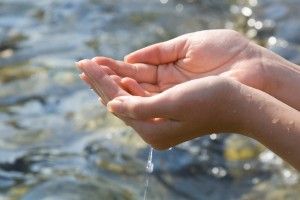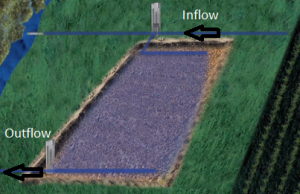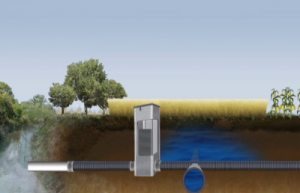Water Quality is vital for the success of agriculture now and for generations to come.
 Impacts of Agriculture on Water Quality
Impacts of Agriculture on Water Quality
Unprecedented amounts of subsurface drainage have caused major concerns for water quality in the United States. This has led to large amounts of unwanted sediments, nitrates, and phosphorus in our receiving streams.
In-Field Practices
Implementation of practices such as Drainage Water Management and Sub Irrigation are playing huge roles in the effort to reach our nutrient reductions. Reductions of nitrates are variable depending on the weather regime for that year; up to 75% reduction in nutrients have been observed. See our Sub Irrigation and Drainage Water Management pages for more information on these practices.
Edge of Field Practices
Innovative practices such as Saturated Buffers, Woodchip Bio Reactors, and Wetlands are being used to reduce sediment, nitrates, and phosphorus loads into water sources. Please view the videos below for reduction efficiencies and more information on each practice

Diagram showing how a Woodchip Bio Reactor operates. Water enters through a control structure, and is diverted through the Bio Reactor

Diagram showing how a Saturated Buffer works. Tile water from the field is diverted through the distribution line in the buffer.
Take a look at these videos to learn more about: Bioreactors, Riparian Buffers and Working Wetlands:
For more information on Water Quality, contact our Lead Conservation Planner.
Email Andy Mackrill; andy@ecoexch.com

